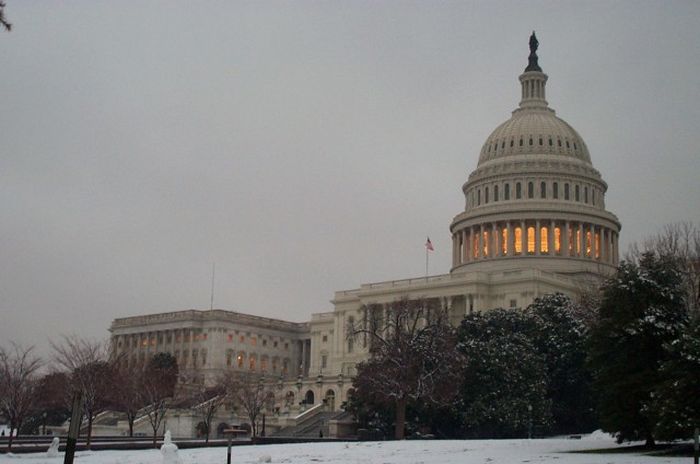COP29 failed those who need it most
This year’s conference did not cough up nearly enough money to redress climate inequalities

It has just passed that time of year where the jargon-filled Conference of the Parties (COP) has skimmed public consciousness. Given the importance of these events, it is difficult to understand how distant and inaccessible they have come to be. Yet, COP remains well and truly out of the bounds of basic understanding. To put it bluntly, the latest rendition represents exactly the disjuncture between ambition and outcome that continuously disappoints those of us who are concerned with the state of our planet. More significantly, however, COP29 has failed those developing countries most vulnerable to the effects of climate change.
Whilst COP29 was not embraced with much optimism, given controversy over the decision to hold the conference in Baku, Azerbaijan (a country labelled in the media as a “petro-state”), the ambition of vulnerable states gave climate activists at least a glimmer of hope. The outcome of this year’s conference, however, ultimately caved in to its dismal expectation.
“The outcome of this year’s conference, however, ultimately caved in to its dismal expectation”
The central issue was climate finance. At a very high level, this was largely dedicated to reaching an agreement on how much money would be pledged annually to support developing countries’ transition to zero-carbon economies (mitigation) and adapt to the adverse effects of climate change. Industrialisation and the large-scale carbonisation of the economy was at the heart of Western modernity. It is only right that these countries should bear the burden of responsibility towards the developing world.
What COP29 sought to hash out is where the line of economic burden lies for these developed countries, negotiating the text of the New Collective Quantified Goal (NCQG). Developing countries (led by Small Island Developing Nations) have asserted this goal should be $1.3 trillion per year by 2035. It has also been argued that the majority of this funding must come from public expenditure, with some claiming the inclusion of private sector investment in these numbers being a tool for developed countries to obfuscate the extent of their contributions. This figure is deemed to be the amount of collective investment needed to sufficiently help countries whose livelihoods are threatened by climate change to implement their adaptation and mitigation policies.
The NCQG text produced read as follows, pledging that developed countries will provide “at least USD 300 billion per year by 2035 for developing countries” calling on all actors to “work together to enable the scaling up of financing to developing countr[ies] for climate action from all public and private sources to at least USD 1.3 trillion per year by 2035”. This was, unsurprisingly, a disappointment for many.
“The most vulnerable states of the world do not just preach the significance of the climate emergency, they feel it”
To put this figure into perspective, the $300 billion a year pledge equates to just 45 days of global military spending. In the face of existential threat, the demands of the vulnerable fell on deaf ears. Developed countries claimed it was the best they could have done. Even if they believe that may be true, their best is not enough. Under the veil of technicality, lives are being played with.
At play, I see a crisis of perception. The most vulnerable states of the world do not just preach the significance of the climate emergency, they feel it. The existential nature of this issue illuminates their grievance with fervour. The developed world, however, uses this rhetoric without enough grounded action. It is the ambition of the vulnerable that should be driving global efforts to tackle this crisis, but the ones that hold the power cannot reconcile their words with the sentiments of the vulnerable. Perhaps if it was their lives under immediate threat these words would translate into progress.
With a second Trump administration peering around the corner, the disappointment of the conference looks to be falling under a larger shadow of dejection. Kemi Badenoch, for instance, has called herself a “net-zero sceptic”. These times are seemingly dark. However, the effort made to demystify the distant world that is COP29 to hear and feel the suffering of the least powerful can motivate actionable change.
To the Western world, I say, you think their demands are unreasonable, try looking in the eyes of the displaced and destitute. The disappointment of COP29 rings clear for climate activists – but this affects everyone.
 News / Cambridge academics stand out in King’s 2026 Honours List2 January 2026
News / Cambridge academics stand out in King’s 2026 Honours List2 January 2026 Interviews / You don’t need to peak at Cambridge, says Robin Harding31 December 2025
Interviews / You don’t need to peak at Cambridge, says Robin Harding31 December 2025 Comment / What happened to men at Cambridge?31 December 2025
Comment / What happened to men at Cambridge?31 December 2025 Features / “It’s a momentary expression of rage”: reforming democracy from Cambridge4 January 2026
Features / “It’s a momentary expression of rage”: reforming democracy from Cambridge4 January 2026 News / Varsity’s biggest stories of 202531 December 2025
News / Varsity’s biggest stories of 202531 December 2025










